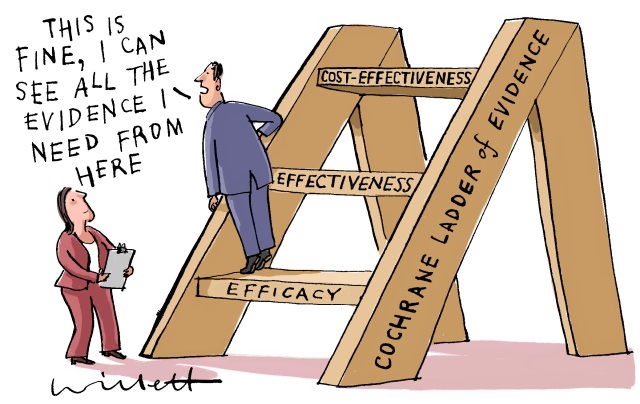Methodological projects
2021
Validation of search filters
 To improve the time efficiency of our searches while maintaining the quality at the same time, we have validated our methodological search filters for identification of experimental studies, observational studies and systematic reviews in PubMed and Embase. Read more about this work in this news item or the full publication.
To improve the time efficiency of our searches while maintaining the quality at the same time, we have validated our methodological search filters for identification of experimental studies, observational studies and systematic reviews in PubMed and Embase. Read more about this work in this news item or the full publication.
Impact update First Aid guidelines
 Updating the first aid guidelines for Flanders, Belgium and Sub-Saharan Africa is a time-consuming task. We have analyzed the impact of updating 346 evidence summaries and developing 110 new evidence summaries with respect to the amount and quality of identified evidence, and the resulting practical recommendation.
Updating the first aid guidelines for Flanders, Belgium and Sub-Saharan Africa is a time-consuming task. We have analyzed the impact of updating 346 evidence summaries and developing 110 new evidence summaries with respect to the amount and quality of identified evidence, and the resulting practical recommendation.
Compared to the 2016 version, in 25% of evidence summaries, the evidence conclusion changed, while 18% of practical recommendations changed. The total time investment made to develop or update these evidence summaries is estimated at 412 working days. These numbers illustrate that updating first aid guidelines is a time-consuming, but worthwhile effort. We are further analyzing these data in more detail, to see how we can further improve time-efficiency of future updates.
To update or not to update systematic literature searches? Deciding what constitutes stable evidence
To provide a basis for developing evidence-based first aid guidelines, CEBaP collects the best available evidence through systematic literature searches in electronic databases of medical literature and synthesizes the evidence in structured evidence summaries. Because science evolves with the accumulation of the research, the guidelines are updated every five years, to maintain the validity of recommendations.

At some point, updating an evidence summary can become redundant when there is enough evidence to be certain about effects in health outcomes, but there is a risk in misjudging this. To date, there is still no well-validated methodology that can indicate when an evidence review reached the point of stable evidence. In this project, we aimed to develop a detailed classification model to decide whether an evidence summary needs to be updated, which is primarily based on estimating the likelihood that the current conclusions will maintain their relevance in the foreseeable future. You can discover the detailed principles of our classification scheme in this news message.
The Belgian Red Cross has updated its first aid guidelines for Flanders (Belgium) and Sub-Saharan Africa for the third time in 2021. During this process, evidence summaries for 454 research questions were newly developed or updated and, after completion, the update status of each individual evidence summary was assessed by two reviewers independently. Based on the in-house developed classification system, 95 evidence summaries (21% of total) were considered to be stable. Using the update classification scheme could reduce 655 working hours or about 21% of the time invested. Closing an evidence summary or even systematic review should be considered as good news as it reveals that research has delivered impactful evidence conclusions (and recommendations) and that resources can now be directed elsewhere.
2020
Development and validation of study design search filters
Developing evidence summaries for first aid guidelines is a time-consuming task. When we develop search strategies to find relevant literature, we are aiming for a balance between finding all relevant publications on a topic and avoiding having to screen too many irrelevant publications. Search filters, which are sets of search terms related to a specific characteristic of a publication, e.g. study design, may help in achieving this balance. In 2020, we have validated study design filters for future use in first aid guideline projects. These will help us to be even more efficient when developing and updating first aid-related evidence summaries. A scientific publication on this project is currently in preparation and will be published in 2021.
How to conduct a (systematic review on) cost-effectiveness analysis
 The mission of CEBaP is to scientifically underpin the activities of the Belgian Red Cross. By doing so, we aim for the Belgian Red Cross to invest its resources in the most effective activities. But cost-effectiveness is also important. Which activities provide most value for money? Cost-effectiveness analyses try to answer this kind of question. In 2020, CEBaP developed a methodological guidance document for conducting a proper cost-effectiveness analysis, detailing how to define a research question, what data to collect, how to perform a data-analysis and how to interpret the results. In addition we have also developed a guidance document to describe best practices for conducting a systematic review on cost-effectiveness analyses.
The mission of CEBaP is to scientifically underpin the activities of the Belgian Red Cross. By doing so, we aim for the Belgian Red Cross to invest its resources in the most effective activities. But cost-effectiveness is also important. Which activities provide most value for money? Cost-effectiveness analyses try to answer this kind of question. In 2020, CEBaP developed a methodological guidance document for conducting a proper cost-effectiveness analysis, detailing how to define a research question, what data to collect, how to perform a data-analysis and how to interpret the results. In addition we have also developed a guidance document to describe best practices for conducting a systematic review on cost-effectiveness analyses.
Conflict of interest procedure
One of the three pillars of Evidence-Based Practice is to include practical/medical experience from experts in the field. Therefore, CEBaP includes subject matter experts when conducting a systematic review or an evidence-based guideline. A key element of protecting CEBaP’s integrity and reputation is ensuring that its decision-making processes are not affected by conflicts of interest (COI). Conflicts are situations in which experts could be influenced to make decisions for improper reasons, specifically for reasons that relate to their own financial interests. In 2020, CEBaP developed its own COI form, that needs to be filled in beforehand by experts involved in CEBaP research projects. The purpose of this form and policy is to provide guidance in identifying and handling potential and actual (non-)financial COI.
